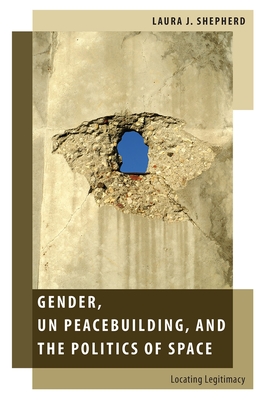The United Nations Peacebuilding Commission (UNPBC) was established in December 2005 to develop outlines of best practice in post-conflict reconstruction, and to secure the political and material resources necessary to assist states in transition from conflict to peacetime. However, a 2010 review found that the hopes of the UN peacebuilding architecture had yet to be realized. Laura J. Shepherd draws upon original fieldwork that she conducted with the UNPBC to argue that the spatial politics of peacebuilding are not only gendered--such that they further marginalize and disadvantage indigenous populations in peacebuilding activities--but also perpetuate hierarchies that privilege the international over the domestic realms.
The United Nations Peacebuilding Commission (UNPBC) was established in December 2005 to develop outlines of best practice in post-conflict reconstruction, and to secure the political and material resources necessary to assist states in transition from conflict to peacetime. Currently, the organization is involved in reconstruction and peacebuilding activities in six countries. Yet, a 2010 review by permanent representatives to the United Nations found that the hopes of the UN peacebuilding architecture "despite committed and dedicated efforts...ha[d] yet to be realized." Two of these hopes relate to gender and power, specifically that peacebuilding efforts integrate a "gender perspective" and that the Commission consult with civil society, NGOs, and women''s organizations. This book is the first to offer an extensive and dedicated analysis of the activities of the UN Peacebuilding Commission with regard to both gender politics, broadly conceived, and the gendered dynamics of civil society participation in peacebuilding activities. Laura J. Shepherd draws upon original fieldwork that she conducted at the UN to argue that the gendered and spatial politics of peacebuilding not only feminizes civil society organizations, but also perpetuates hierarchies that privilege the international over the domestic realms. The book argues that the dominant representations of women, gender, and civil society in UN peacebuilding discourse produce spatial hierarchies that paradoxically undermine the contemporary emphasis on "bottom-up" governance of peacebuilding activities.
Get Gender, UN Peacebuilding, and the Politics of Space by at the best price and quality guranteed only at Werezi Africa largest book ecommerce store. The book was published by Oxford University Press Inc and it has pages. Enjoy Shopping Best Offers & Deals on books Online from Werezi - Receive at your doorstep - Fast Delivery - Secure mode of Payment
 Jacket, Women
Jacket, Women
 Woolend Jacket
Woolend Jacket
 Western denim
Western denim
 Mini Dresss
Mini Dresss
 Jacket, Women
Jacket, Women
 Woolend Jacket
Woolend Jacket
 Western denim
Western denim
 Mini Dresss
Mini Dresss
 Jacket, Women
Jacket, Women
 Woolend Jacket
Woolend Jacket
 Western denim
Western denim
 Mini Dresss
Mini Dresss
 Jacket, Women
Jacket, Women
 Woolend Jacket
Woolend Jacket
 Western denim
Western denim
 Mini Dresss
Mini Dresss
 Jacket, Women
Jacket, Women
 Woolend Jacket
Woolend Jacket
 Western denim
Western denim
 Mini Dresss
Mini Dresss






























































